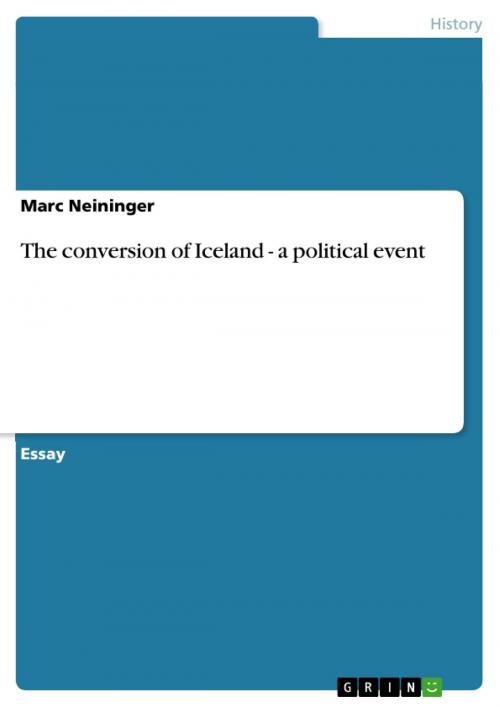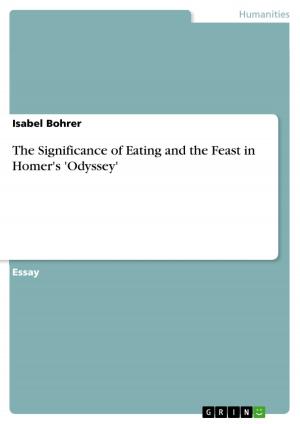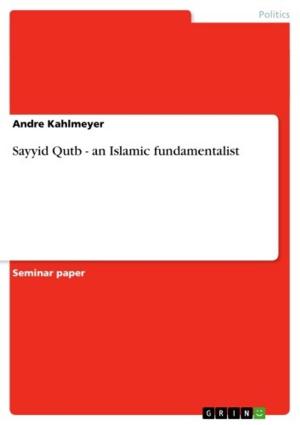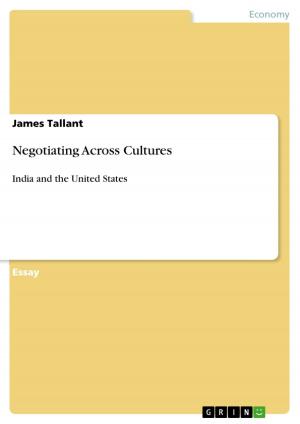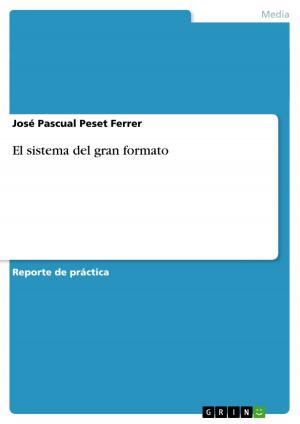The conversion of Iceland - a political event
a political event
Nonfiction, History, European General| Author: | Marc Neininger | ISBN: | 9783638536271 |
| Publisher: | GRIN Publishing | Publication: | August 21, 2006 |
| Imprint: | GRIN Publishing | Language: | English |
| Author: | Marc Neininger |
| ISBN: | 9783638536271 |
| Publisher: | GRIN Publishing |
| Publication: | August 21, 2006 |
| Imprint: | GRIN Publishing |
| Language: | English |
Essay from the year 2004 in the subject History Europe - Other Countries - Middle Ages, Early Modern Age, grade: 1,0, The University of Western Ontario, course: Old Iceland, 7 entries in the bibliography, language: English, abstract: The conversion of Iceland in the year 1000 A.D. was doubtlessly an event of great importance in the history of the country. This is reflected in the number of sources that give an account of the happenings; here especially the Islendigabok, written by Ari the Wise, has to be named foremost, since it is our oldest and also most reliable source (Stömbäck 18; Aðalsteinsson 55). Ari wrote the Islendigabok some time in the years between 1122 and 1132. He himself states that 'it is our duty to give preference to that which is proved to be most correct' (Ari 59). The Islendigabok can indeed be seen as the first work of Historiography in Iceland. One reason for this is that Ari names his major sources and refers to them when he talks about singular events [...] When the Alðing accepted Christianity the consequences must have been clear. The ignorance and indifference towards Christianity thereafter shows that the actual event of the Conversion was a political one, and only on a secondary level a religious one. The conversion to Christianity was a long process that became more serious only with the second bishop of Iceland, Gizur Isleifsson from on. The reason for the acceptance of Christianity remains obscure. I believe, though, that there was pressure from King Olaf Tryggvason. This would explain the optimism of Gizur the White and Hjalti when they came to the Alðing. This pressure might range from persecution of Icelanders to war to economical repressions. The menacing collapse of the Icelandic commonwealth might also play a role. However, even if these assumptions would turn out to be incorrect, the conversion of Iceland in the year 1000 A.D. still remains to a very large degree a political event.
Essay from the year 2004 in the subject History Europe - Other Countries - Middle Ages, Early Modern Age, grade: 1,0, The University of Western Ontario, course: Old Iceland, 7 entries in the bibliography, language: English, abstract: The conversion of Iceland in the year 1000 A.D. was doubtlessly an event of great importance in the history of the country. This is reflected in the number of sources that give an account of the happenings; here especially the Islendigabok, written by Ari the Wise, has to be named foremost, since it is our oldest and also most reliable source (Stömbäck 18; Aðalsteinsson 55). Ari wrote the Islendigabok some time in the years between 1122 and 1132. He himself states that 'it is our duty to give preference to that which is proved to be most correct' (Ari 59). The Islendigabok can indeed be seen as the first work of Historiography in Iceland. One reason for this is that Ari names his major sources and refers to them when he talks about singular events [...] When the Alðing accepted Christianity the consequences must have been clear. The ignorance and indifference towards Christianity thereafter shows that the actual event of the Conversion was a political one, and only on a secondary level a religious one. The conversion to Christianity was a long process that became more serious only with the second bishop of Iceland, Gizur Isleifsson from on. The reason for the acceptance of Christianity remains obscure. I believe, though, that there was pressure from King Olaf Tryggvason. This would explain the optimism of Gizur the White and Hjalti when they came to the Alðing. This pressure might range from persecution of Icelanders to war to economical repressions. The menacing collapse of the Icelandic commonwealth might also play a role. However, even if these assumptions would turn out to be incorrect, the conversion of Iceland in the year 1000 A.D. still remains to a very large degree a political event.
